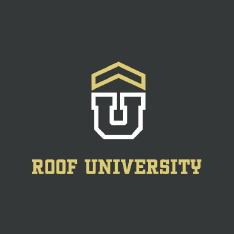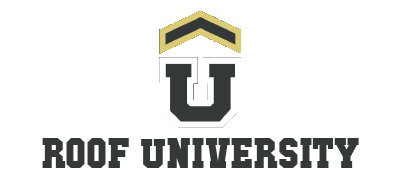Roof decking, or roof sheathing, is a crucial component of your home’s roofing system, providing structural support and forming the foundation for roofing materials. Understanding its types, functions, and maintenance can help homeowners identify issues, protect their investment, and ensure a safe and energy-efficient home. This guide covers everything from common materials like plywood and OSB to signs of damage, repair, and replacement processes. Whether you’re a homeowner, roofer, or small business owner, this comprehensive overview will help you make informed decisions about your roof decking needs.
Introduction
Decking might not be the first thing you notice about your home’s roof, but it plays an essential role in maintaining the integrity of your property. Acting as the structural foundation for the roof, decking supports shingles, metal panels, and other roofing materials. Without strong and well-maintained roof decking, issues like sagging, leaks, and even structural failure can arise. This guide breaks down everything homeowners need to know about roof decking, providing expert advice for maintaining and repairing this critical component.
What Is Roof Decking
Roof decking, also called roof sheathing, refers to the flat boards attached to the trusses or joists of a roof. These boards form the surface on which roofing materials like asphalt shingles, metal panels, or tiles are installed.
While roof decking and roof sheathing are often used interchangeably, they serve the same purpose: distributing weight evenly, providing a base for roofing materials, and protecting your home from weather-related damage. Without this layer, your roofing system would lack the necessary stability and durability to withstand environmental stressors.
Types of Roof Decking Materials
Plywood
Plywood is one of the most commonly used materials for roof decking. Made of thin wood veneers glued together, plywood offers excellent strength and resilience. Homeowners often choose plywood because it provides a smooth and even surface, ideal for supporting shingles or synthetic roofing materials like Owens Corning TruDefinition Duration shingles.
Oriented Strand Board (OSB)
Another popular choice is Oriented Strand Board, or OSB. This material is manufactured from compressed wood strands and resin, creating a uniform and cost-effective option. While it is generally less expensive than plywood, some professionals, including those certified by CertainTeed, argue that OSB is more prone to moisture-related issues, particularly in humid climates.
Metal Decking
Metal decking, often constructed from aluminum or steel, is less common in residential homes but frequently used in commercial roofing projects. Known for its durability and fire resistance, metal decking can be a long-term solution for homeowners willing to invest in high-quality materials.
Functions of Roof Decking
Structural Support
Decking provides critical structural support that ensures your roof can handle the weight of roofing materials and withstand external pressures, such as heavy snow or strong winds. This strength is essential for long-term durability and safety.
Moisture Protection
Decking also serves as a protective barrier against moisture infiltration. When paired with underlayment materials like GAF Tiger Paw or Ice & Water Shield, roof decking can prevent water damage that leads to mold, rot, or structural decay.
Energy Efficiency
Properly installed roof decking helps improve energy efficiency by optimizing insulation and ventilation. For example, combining decking with ridge vents like Lomanco RidgeMaster can help regulate indoor temperatures and reduce energy costs.
Common Problems and Signs of Damage
Sagging or Uneven Roof
Sagging indicates structural weakening, often caused by water damage or aging materials. Homeowners should inspect for sagging spots after heavy rain or snow.
Water Stains or Leaks
Water stains on your ceiling or leaks during storms are clear signs that the roof decking may be compromised. Regular inspections, especially after severe weather, can help identify issues early.
Mold and Rot
Mold or rot on the decking, visible from the attic, is often caused by prolonged moisture exposure. This issue, if unaddressed, can lead to expensive repairs or even a complete roof replacement.
Repair and Replacement
When to Repair
Minor damages, such as small cracks or isolated mold patches, can often be repaired by replacing the affected sections of the decking. Working with professionals ensures the job is done safely and effectively.
When to Replace
Extensive damage or warping may require full replacement. Replacement often occurs during major roof renovations when shingles, flashing, and decking are simultaneously upgraded to maintain system integrity.
Maintenance Tips
Regular maintenance can prolong the life of your decking.
- Inspections: Schedule inspections with certified contractors like those affiliated with Malarkey Roofing Products.
- Moisture Protection: Ensure underlayment and flashing are properly installed.
- Ventilation: Keep ridge vents, like Owens Corning VentSure, free of obstructions.
Choosing the Right Roofing Materials for Your Decking
The compatibility of roofing materials with decking is essential. For instance:
- Asphalt Shingles: Lightweight and versatile, ideal for plywood or OSB decking.
- Metal Panels: Pair well with metal decking for maximum durability.
Frequently Asked Questions
- What Happens if Roof Decking Is Ignored?
Ignoring decking issues can lead to costly repairs and structural damage. - Can Homeowners Inspect Decking Themselves?
While homeowners can spot obvious signs of damage, professional inspections are safer and more thorough.
Conclusion
Decking is the backbone of your roofing system, providing the structural support and protection your home needs to withstand environmental challenges. Understanding its materials, functions, and maintenance requirements can help homeowners avoid costly repairs and extend the lifespan of their roofs. By choosing certified professionals and quality materials, like those from GAF, CertainTeed, and Malarkey Roofing Products, you can ensure your roof decking remains in excellent condition for years to come.
Parks
Matt is Five Points Roofing's VP of Business Development, directly in charge of company growth and building a true contracting brand that is trusted by millions of homeowners. It’s not all business for Matt though, being 6’5”, he’s an avid amateur beach volleyball player and golfer. Competition is his thing. Happily married to his wife Laura, they also have a giant 72 pound ex-racing greyhound that’ll run laps around you.
Roof University is the place if you're a roofer, property owner, or insurance adjuster.
